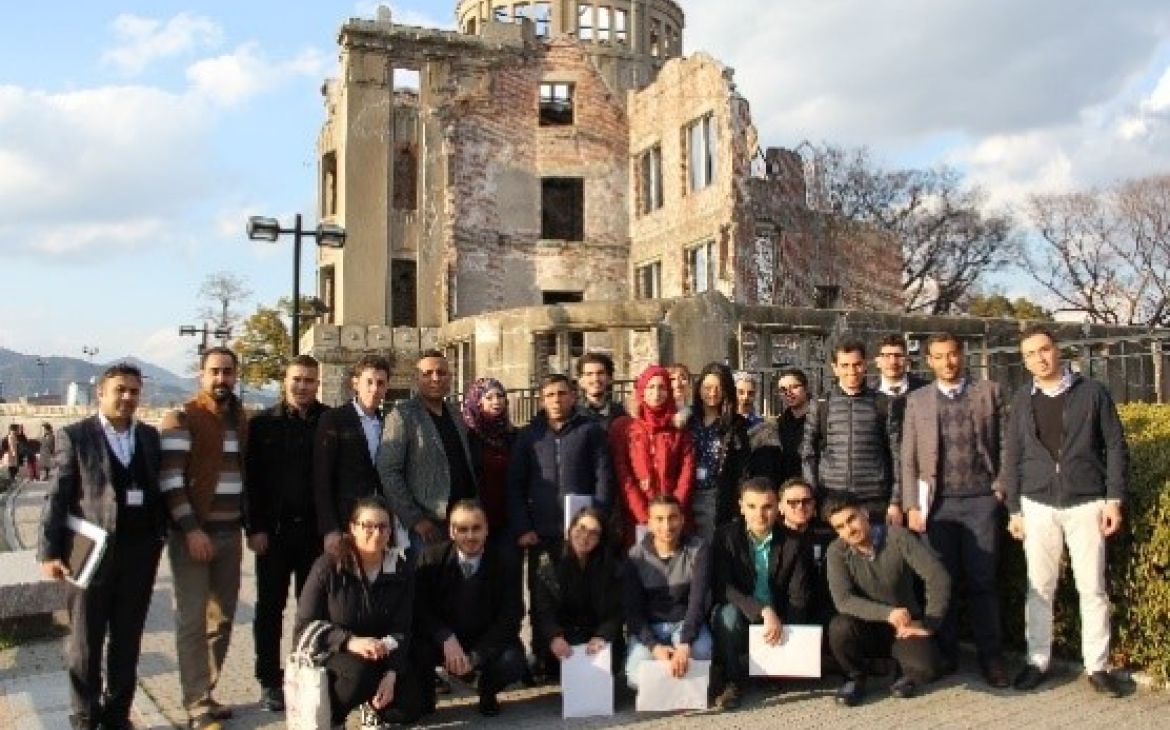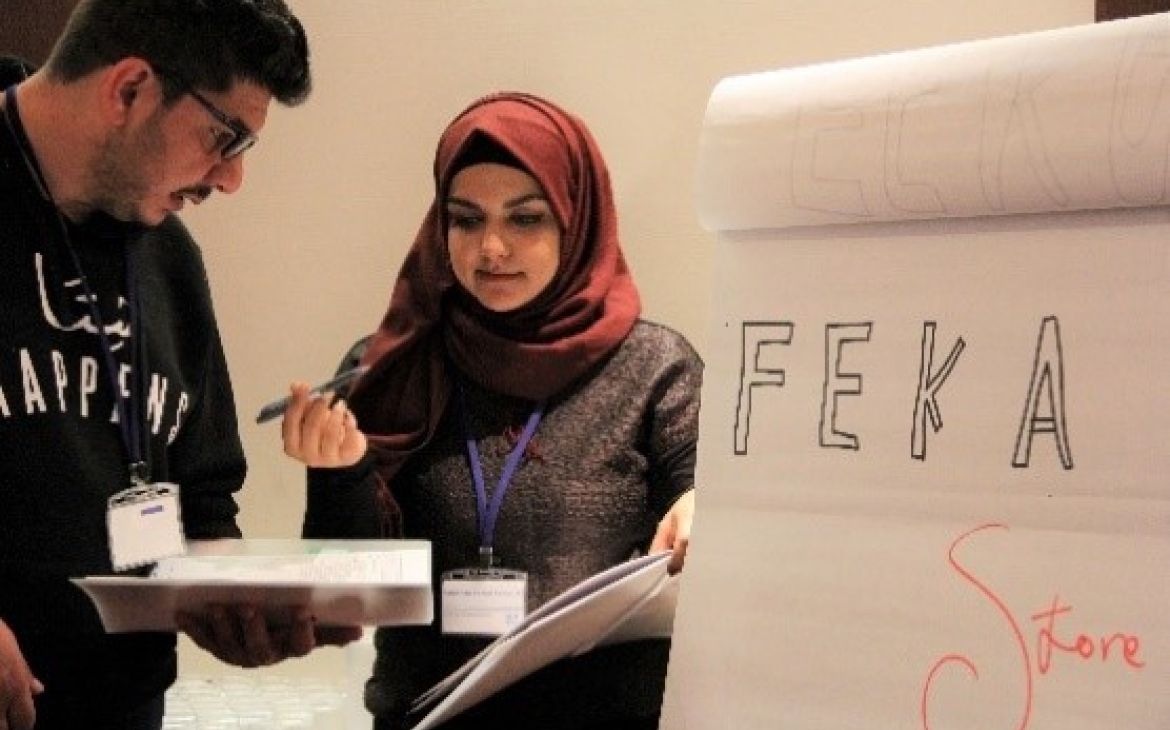22 March 2017, Hiroshima, Japan – The United Nations Institute for Training and Research (UNITAR) Hiroshima Office has successfully completed the second workshop of the UNITAR Iraq Fellowship Programme: Entrepreneurship and Leadership Youth Training, held in Tokyo and Hiroshima, Japan, from 5 – 11 March 2017. The Fellowship is a six-month specialized capacity-building programme examining entrepreneurship and youth leadership in the context of Iraq and incorporating two face-to-face international workshops, blending online and asynchronous learning, and participant-led real-world projects. The Fellowship is implemented with the generous support of the Government of Japan.
Twenty-four Fellows, including eight women, from various public sector, private sector, academic institutions, and civil society organizations participated in the training. The Fellows, young leaders in Iraqi society, gained project development and high-level entrepreneurship skills in Workshop II. All learning was augmented by individual and group practical exercises, as well as frequent opportunities for Fellows to present their work, evidencing knowledge transfer and encouraging ownership of the learning process.
After paying a courtesy call to the Ministry of Foreign Affairs in Tokyo, Fellows began the workshop in Hiroshima by presenting the results of a Needs Assessment of their organization, undertaken in Baghdad and utilizing the learning undertaken at Workshop I (conducted in late 2016). The needs Fellows identified through this process included, amongst others: medical care for Internally Displaced Persons; connecting local artisans to business opportunities through an online marketplace; and revising entrepreneurship curriculum for post-conflict areas. All needs assessments were focused on the common goal of improving the livelihood of Iraqis and making the country more self-sufficient and stable in the future. At the end of the workshop, Fellows presented their projects again, this time including the project design and development tools they developed during the workshop.
High-level entrepreneurship was another focus of Workshop II, with Fellows working in teams to develop business models for four of their peers’ entrepreneurial organizations. The final day of the workshop also included an examination of leadership and work styles and how these can contribute to the design and development of effective teams. The workshop concluded with a graduation ceremony and a celebration of Iraqi culture.
One of the Fellows who participated in Workshop II, Ali Nahi Abed Al-Hasnawi, said, "This is my first time taking an entrepreneurship skills course; it will help me to implement my project, which will be useful for the Iraqi Ministry of Oil. If we implement my work, we can develop our staff, buy more equipment, and depend on ourselves." He also commented on the story of Hiroshima's reconstruction: "I saw the massive size of the destruction and the effect of the bomb on Hiroshima, but the people of Hiroshima worked together to rebuild their city and develop Hiroshima again. We face a similar situation in Iraq, but we will work hard to rebuild our country."
Another Fellow, Sama Basil Kamal Al-Juboori, said, "One of the main lessons from Hiroshima's reconstruction is to forgive and not forget; it had a great effect on me.” She continued, “I have not been in a programme with government, private sector, and NGOs at the same place, and this programme has created an atmosphere for people from diverse professional backgrounds to work together and try to understand each other better. When we go back to Iraq, we will utilize this training to start working together.”
UNITAR Hiroshima Office Head Mihoko Kumamoto commented, “The Fellows, who were selected through a competitive screening process, came from diverse backgrounds. They were energetic, dynamic, and committed to learning from experiences in Hiroshima and around the world. Inclusive development, which incorporates voices from all segments of society, including youth, is key to the peaceful and sustainable development of Iraq. We are honored to assist Iraq to achieve such development through this training programme.”
About UNITAR
The United Nations Institute for Training and Research (UNITAR) is a principal training arm of the United Nations, working in every region of the world. We empower individuals, governments and organizations through knowledge and learning to effectively overcome contemporary global challenges. The UNITAR Hiroshima Office, mandated to promote post-conflict reconstruction and international peace, has long engaged in designing and conducting training for people from post-conflict countries, such as Afghanistan and South Sudan, and commands a unique understanding of the needs of such trainees as they work toward peace.
For more information, please contact:
At UNITAR Hiroshima
Shamsul Hadi SHAMS (Mr.)
E-mail: shamsul.shams@unitar.org
Phone: +81 82 511 2424



